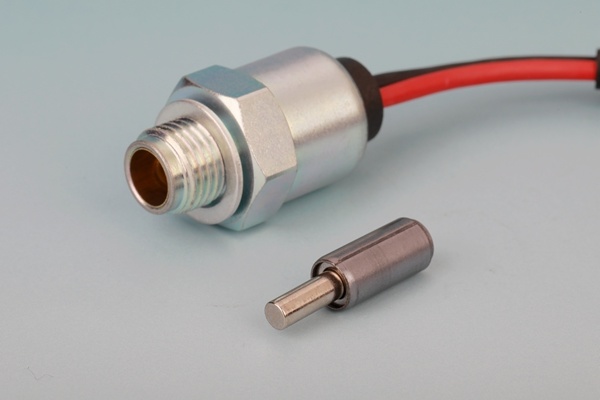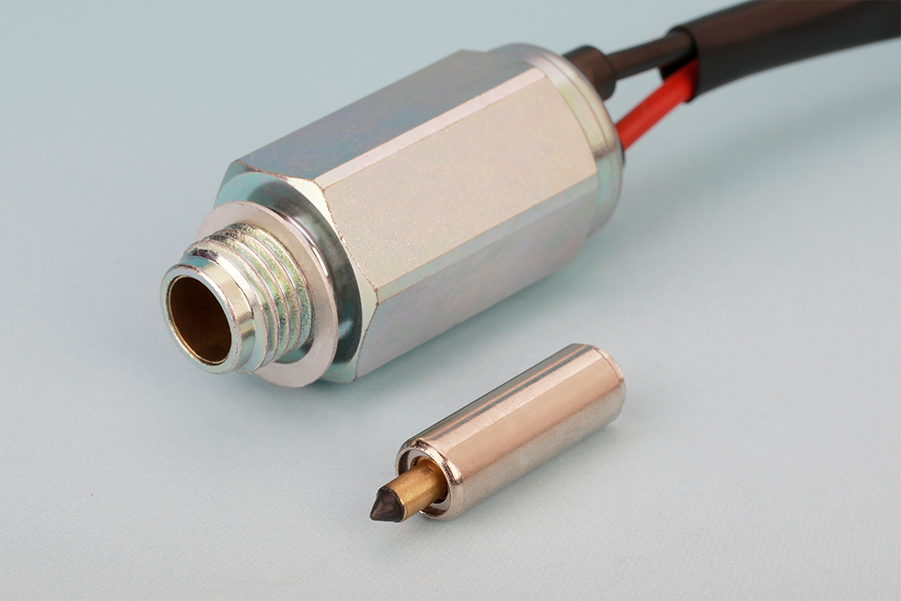The Essential Role of Nikki Carburetor Solenoid in Automotive Performance
Release Time:
Apr 23,2025
The Nikki Carburetor Solenoid is a critical component within the realm of automotive performance, particularly in the intricate systems of carburetors. This solenoid plays an essential role in regulating fuel delivery, ensuring optimal combustion within the engine. By controlling the flow of fuel to the carburetor, the Nikki Carburetor Solenoid enhances engine responsiveness and efficiency, crucia
The Nikki Carburetor Solenoid is a critical component within the realm of automotive performance, particularly in the intricate systems of carburetors. This solenoid plays an essential role in regulating fuel delivery, ensuring optimal combustion within the engine. By controlling the flow of fuel to the carburetor, the Nikki Carburetor Solenoid enhances engine responsiveness and efficiency, crucial for high-performing vehicles.
One of the primary functions of the Nikki Carburetor Solenoid is to manage the fuel-air mixture that enters the engine. This regulation is vital for maintaining the appropriate balance needed for effective combustion. When the engine requires more power, such as during acceleration, the solenoid activates to enrich the fuel mixture, thereby increasing engine performance. Conversely, when less power is needed, the solenoid can adjust to lean out the mixture, promoting fuel efficiency. This dynamic control is vital for optimizing both performance and fuel economy, making the Nikki Carburetor Solenoid an indispensable component in modern automotive systems.
Professionals in the automotive industry should be aware of the various applications of the Nikki Carburetor Solenoid. It is commonly found in a range of vehicles, particularly those that utilize carbureted engines. Its reliability and precision in fuel management make it a preferred choice among vehicle manufacturers and aftermarket suppliers alike. Understanding the specifications and installation requirements of the Nikki Carburetor Solenoid is crucial for automotive technicians. Proper installation ensures that the solenoid functions correctly, which can prevent issues such as poor engine performance, excessive fuel consumption, and potential engine damage.
Moreover, routine maintenance and troubleshooting of the Nikki Carburetor Solenoid can help identify common issues proactively. Symptoms of a failing solenoid may include rough idling, stalling, or difficulty in starting the engine. Technicians are encouraged to perform regular inspections and tests to ensure the solenoid operates within its designed parameters. This preventative approach can save time and resources, leading to enhanced customer satisfaction and vehicle reliability.
In conclusion, the Nikki Carburetor Solenoid is a vital component that significantly impacts automotive performance. Its ability to manage fuel delivery not only enhances engine efficiency but also contributes to reduced emissions, aligning with modern environmental standards. Automotive professionals should prioritize understanding this component's mechanisms and applications to ensure optimal engine performance and customer satisfaction. By leveraging the technical knowledge surrounding the Nikki Carburetor Solenoid, professionals can make informed decisions that enhance both the reliability and efficiency of their automotive systems.
One of the primary functions of the Nikki Carburetor Solenoid is to manage the fuel-air mixture that enters the engine. This regulation is vital for maintaining the appropriate balance needed for effective combustion. When the engine requires more power, such as during acceleration, the solenoid activates to enrich the fuel mixture, thereby increasing engine performance. Conversely, when less power is needed, the solenoid can adjust to lean out the mixture, promoting fuel efficiency. This dynamic control is vital for optimizing both performance and fuel economy, making the Nikki Carburetor Solenoid an indispensable component in modern automotive systems.
Professionals in the automotive industry should be aware of the various applications of the Nikki Carburetor Solenoid. It is commonly found in a range of vehicles, particularly those that utilize carbureted engines. Its reliability and precision in fuel management make it a preferred choice among vehicle manufacturers and aftermarket suppliers alike. Understanding the specifications and installation requirements of the Nikki Carburetor Solenoid is crucial for automotive technicians. Proper installation ensures that the solenoid functions correctly, which can prevent issues such as poor engine performance, excessive fuel consumption, and potential engine damage.
Moreover, routine maintenance and troubleshooting of the Nikki Carburetor Solenoid can help identify common issues proactively. Symptoms of a failing solenoid may include rough idling, stalling, or difficulty in starting the engine. Technicians are encouraged to perform regular inspections and tests to ensure the solenoid operates within its designed parameters. This preventative approach can save time and resources, leading to enhanced customer satisfaction and vehicle reliability.
In conclusion, the Nikki Carburetor Solenoid is a vital component that significantly impacts automotive performance. Its ability to manage fuel delivery not only enhances engine efficiency but also contributes to reduced emissions, aligning with modern environmental standards. Automotive professionals should prioritize understanding this component's mechanisms and applications to ensure optimal engine performance and customer satisfaction. By leveraging the technical knowledge surrounding the Nikki Carburetor Solenoid, professionals can make informed decisions that enhance both the reliability and efficiency of their automotive systems.
Related content




